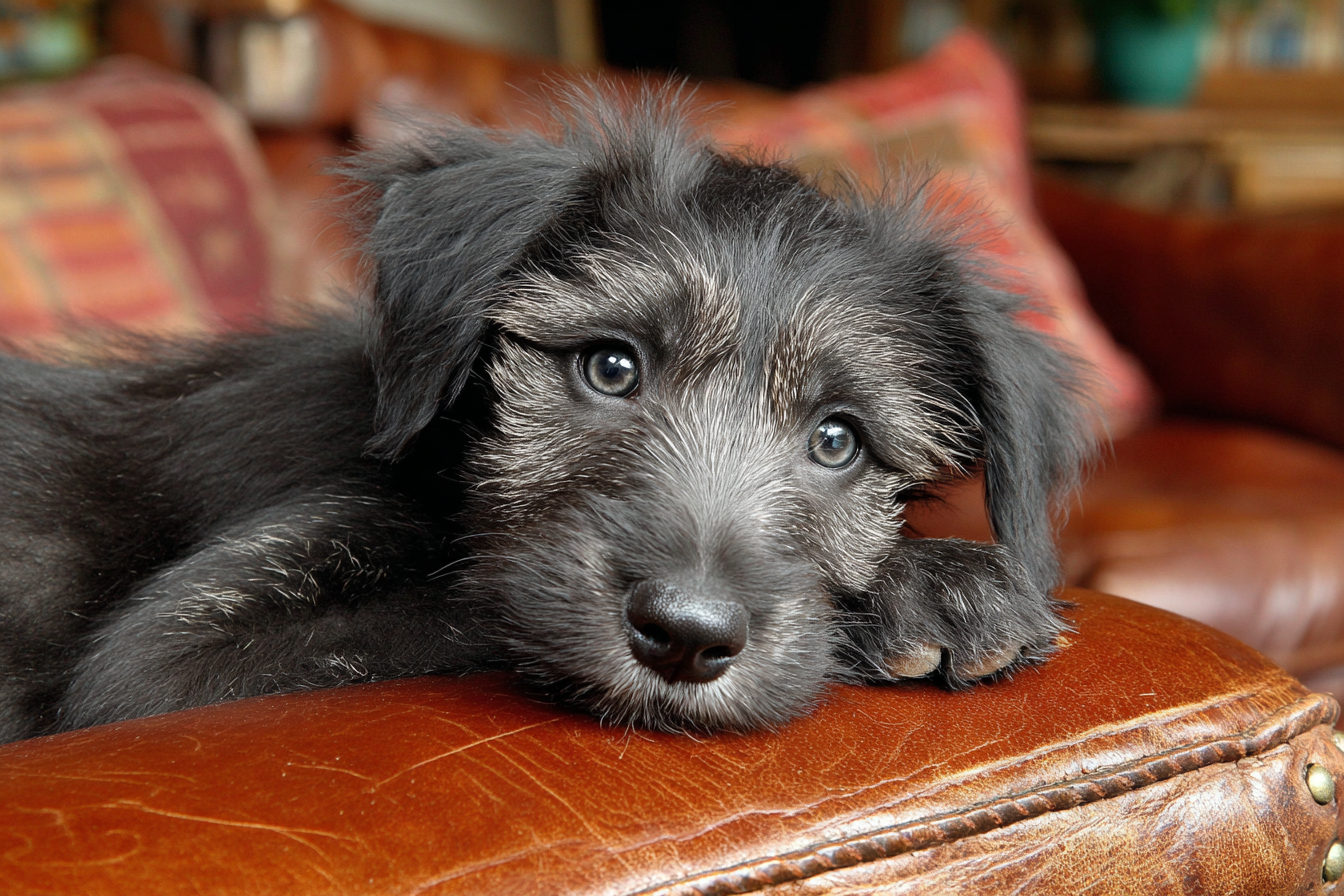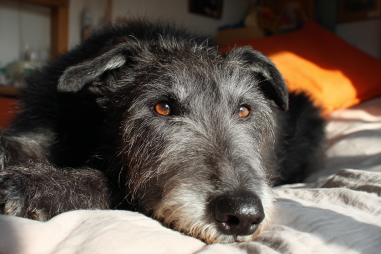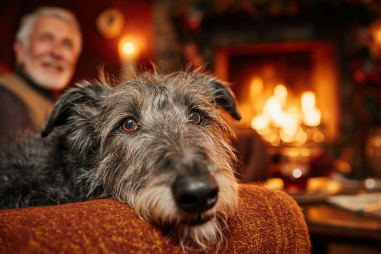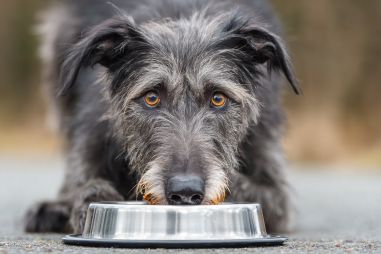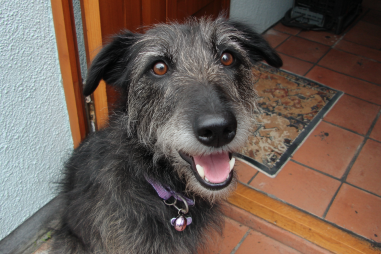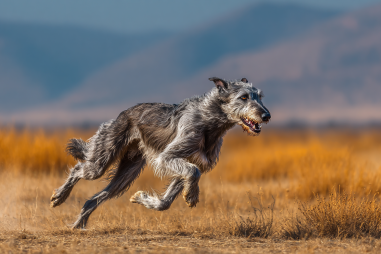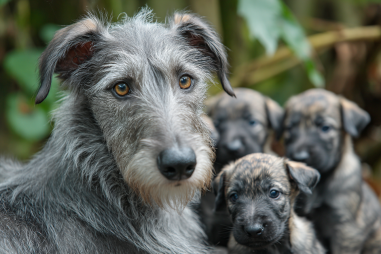Welcoming a Scottish Deerhound puppy into your home is an exciting journey filled with joy and new responsibilities. Known for their gentle disposition and majestic appearance, Scottish Deerhounds make wonderful companions. However, like all breeds, they have specific needs that require attention for them to thrive. In this article, we’ll explore essential Scottish Deerhound puppy care tips to help you provide the best possible start for your young hound.
Feeding and Nutrition Advice
Proper nutrition is the foundation of your Scottish Deerhound puppy’s health and growth. These puppies are large-breed dogs with unique dietary requirements to support their rapid development without causing bone or joint problems.
Feed your puppy a high-quality, large-breed puppy food formulated to promote healthy growth. These formulas typically contain the right balance of calcium and phosphorus essential for bone development. Avoid overfeeding, as excess weight can strain growing joints and predispose your Deerhound to orthopedic issues.
Divide their meals into three to four smaller portions daily to aid digestion and maintain steady energy levels. Fresh, clean water should always be available. You can also complement their diet with occasional healthy treats, but avoid giving them human food or items that could be toxic for dogs.
Creating a Safe Environment
Scottish Deerhounds grow to be large and powerful dogs, so it’s crucial to puppy-proof your home to keep them safe. They are curious and playful, especially in the early months, which means they can get into trouble if their environment isn’t secure.
Start by removing or securing any hazardous items such as electrical cords, toxic plants, and small objects that could be swallowed. Make sure your yard or outdoor area is securely fenced because Deerhounds have a strong prey drive and enjoy sprinting after small animals.
Provide your puppy with a designated safe space, such as a cozy crate or a quiet corner, where they can retreat and rest without disturbances. This fosters a sense of security and helps with training.
Early Socialization
Early socialization plays a vital role in shaping your Scottish Deerhound puppy’s temperament and behavior. Introducing your puppy to various people, animals, sounds, and environments will help them grow into a confident, well-rounded adult dog.
Start socializing as soon as your puppy has completed their initial vaccinations. Invite friends and family over to interact with your puppy, take them to puppy classes, and organize safe playdates with other vaccinated dogs. Exposure to different sights and sounds like car rides, household appliances, and busy streets can prevent fearfulness later on.
Always use positive reinforcement and gentle encouragement during socialization experiences to build trust and happiness.
Basic Training Fundamentals
Training your Scottish Deerhound puppy early is key to developing good manners and a strong bond between you. These dogs are intelligent but can be somewhat independent, so training should be consistent, patient, and reward-based.
Begin with simple commands such as “sit,” “stay,” “come,” and “down.” Use treats, praise, and toys to motivate your puppy and make training sessions enjoyable. Keep training short and frequent to hold their attention without fostering fatigue or frustration.
Crate training and housebreaking should also be introduced from the start. This sets clear boundaries and expectations while supporting their natural denning instincts.
Health Checkups and Vaccinations
Regular veterinary care is critical to ensure your Scottish Deerhound puppy remains healthy and protected from common diseases. Schedule an initial health checkup shortly after bringing your puppy home. This visit allows your vet to assess their overall health, discuss vaccination schedules, and provide advice on parasite control.
Your puppy will need a series of vaccinations, usually starting around six to eight weeks of age, and boosters every few weeks until about four months. Core vaccines typically include protection against parvovirus, distemper, adenovirus, and rabies.
Discuss flea, tick, and worm prevention options with your veterinarian, as these parasites can cause significant health issues. Regular health checks help detect any early signs of hereditary or breed-specific conditions, allowing for timely intervention.
Grooming Tips for Puppies
Scottish Deerhounds have a wiry, rough coat that requires moderate grooming to keep it healthy and looking its best. Starting grooming routines early encourages your puppy to become comfortable with the process.
Brush your puppy’s coat gently at least once or twice a week using a slicker brush or a comb designed for wiry coats. This helps remove dirt, prevent matting, and distribute natural oils. Bathing should only be done occasionally, using a gentle dog shampoo to avoid skin irritation.
Don’t forget to trim your puppy’s nails regularly, clean their ears to prevent infections, and brush their teeth to promote dental health. Check all grooming tools beforehand to ensure they are puppy-friendly and safe.
Enjoying Life with Your Scottish Deerhound Puppy
Raising a Scottish Deerhound puppy is a wonderful experience filled with affection and learning. By providing balanced nutrition, a secure environment, early socialization, consistent training, regular veterinary care, and gentle grooming, you set your puppy up for a lifetime of health and happiness.
Remember, every puppy is unique, and patience is key. Embrace the slow and steady process of nurturing your Scottish Deerhound, and you will be rewarded with a loyal and graceful companion by your side for many years to come.

